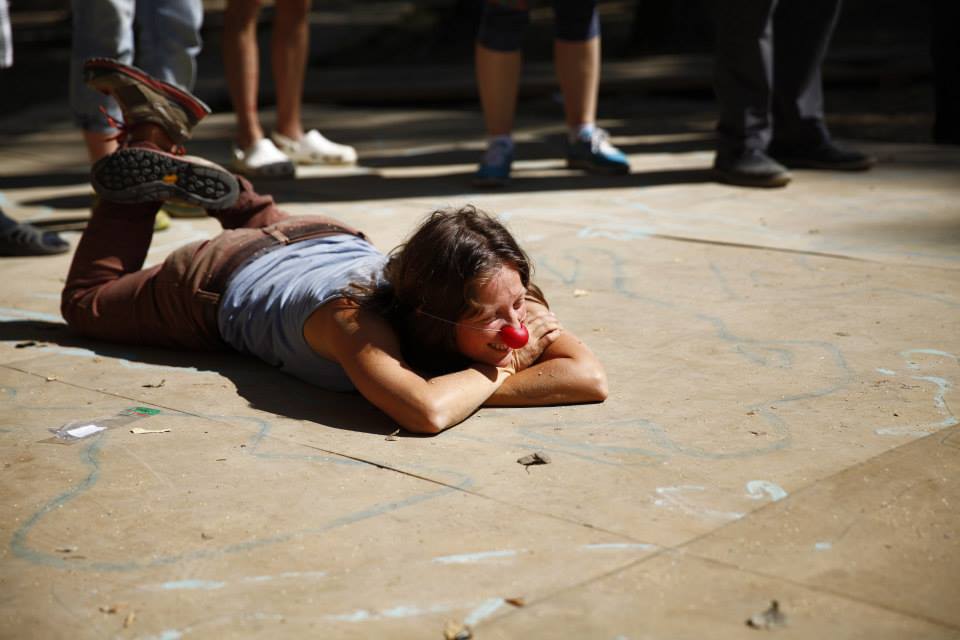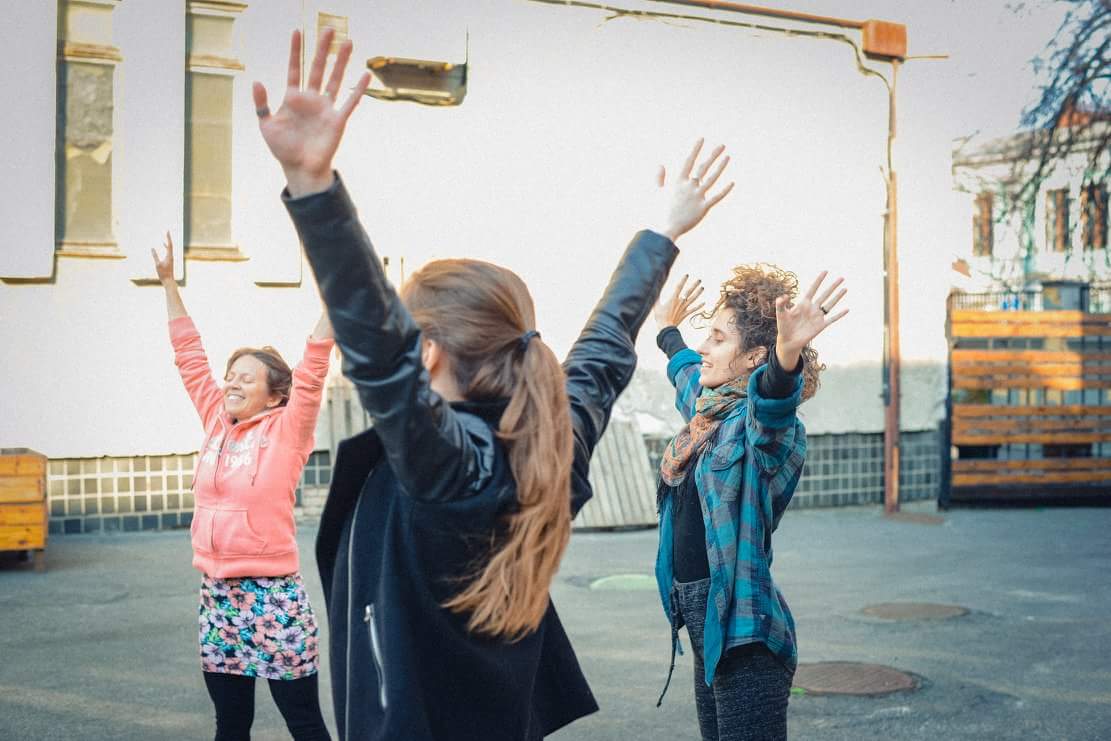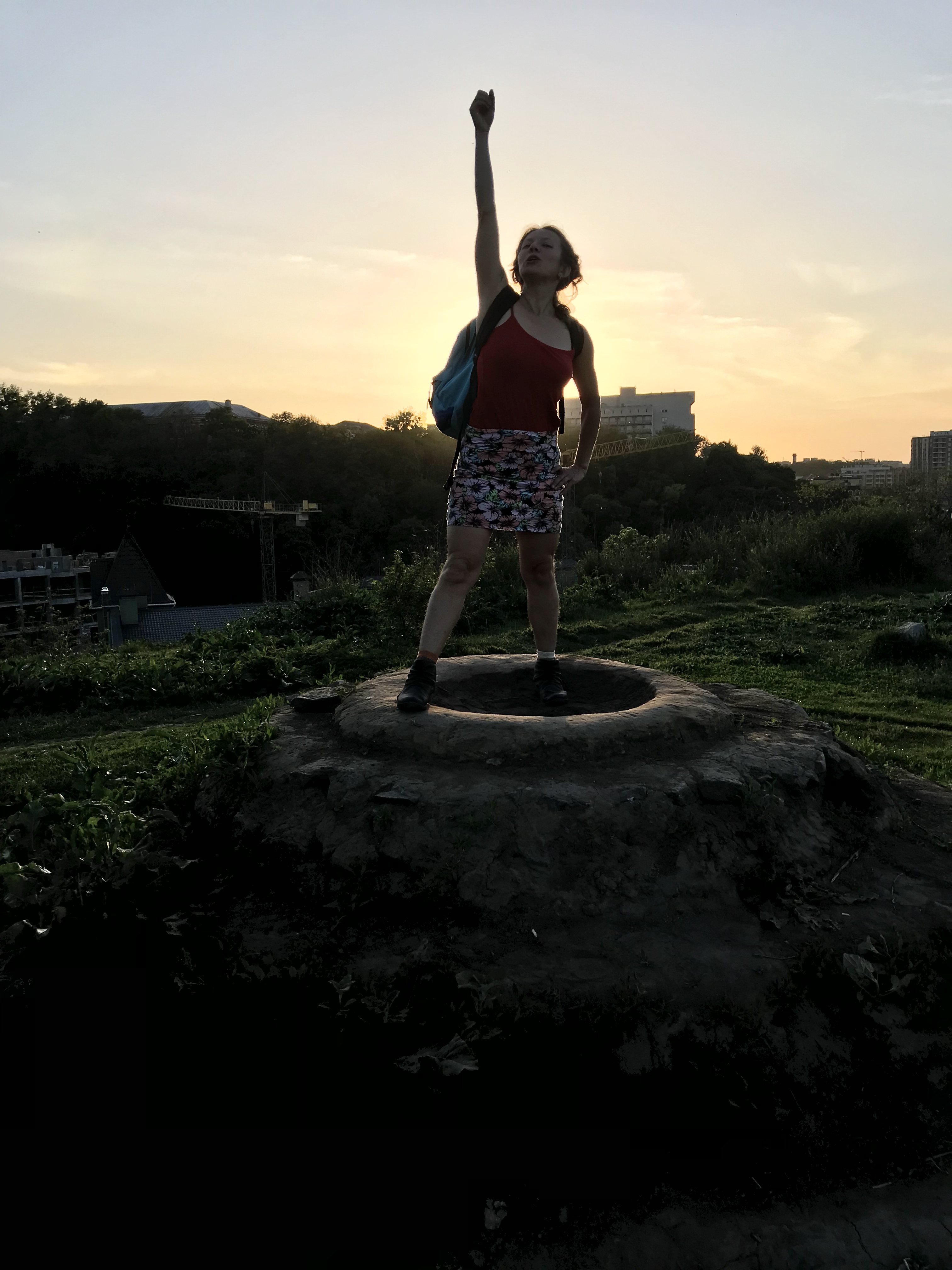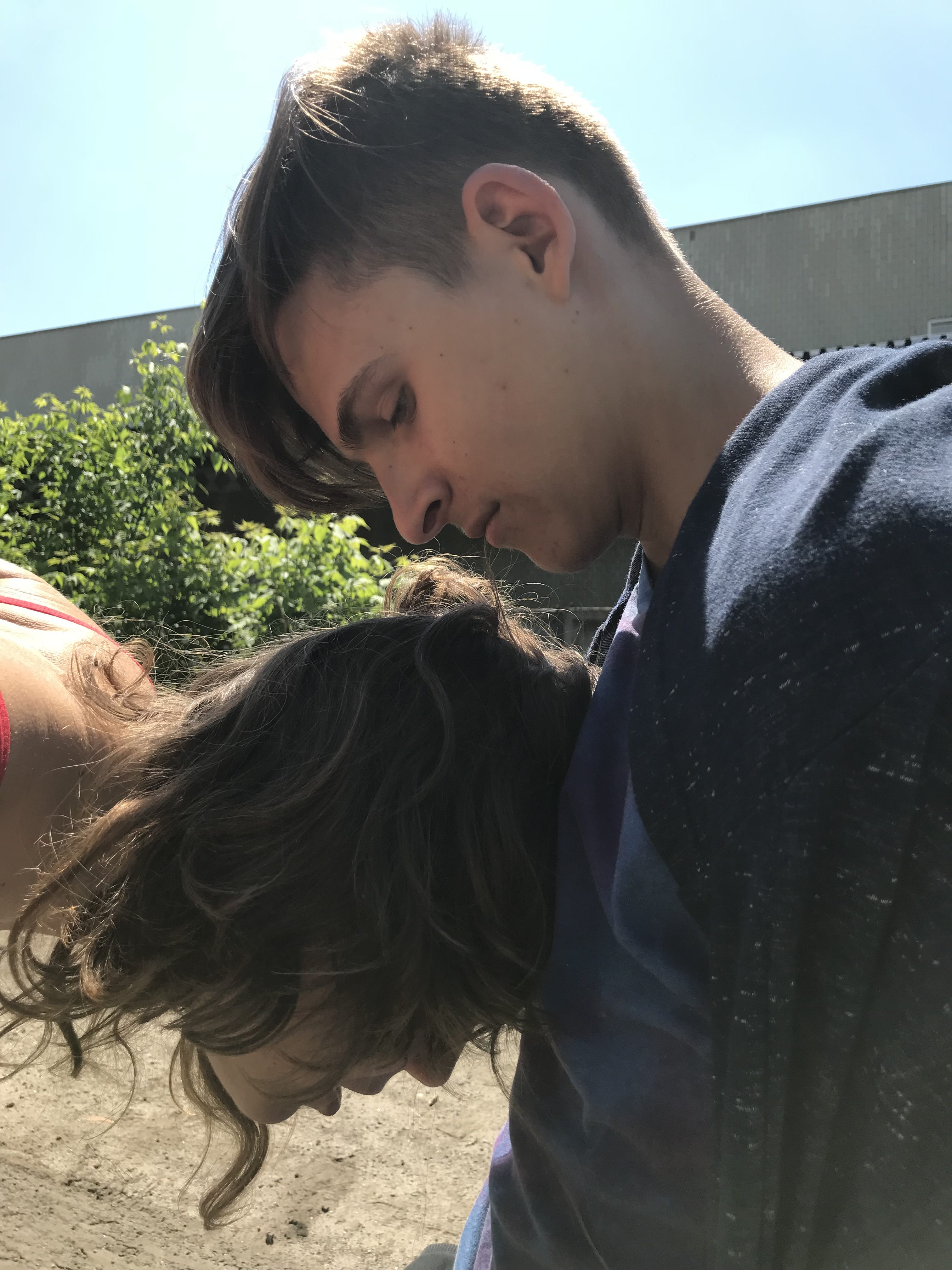The CASSANDRA Project
In ancient Greek mythology Cassandra was cursed by the god of reason and logic, Apollo, to always speak the truth and never be believed. She represents intuition, and her myth reflects western society’s devaluation of divine feminine knowledge.
The CASSANDRA Project is intended as a space for Cassandras in our community to speak their truth. It’s a space for female-identifying myth-busters to speak out and up for women, LGBTQ, and other marginalized peoples. While there are many columns and blogs that focus on women whose success is defined by the patriarchal values of wealth, power and prestige within the system, this column is dedicated to celebrating women for just being, a political act in and of itself in today’s world. It is a space to share the ways in which female-identifying people have maintained their relationship to the divine feminine forces of intuition and creativity outside the status quo, and in spite of male dominated industries and patriarchal systems.
This column is about, for and dedicated to all of the daughters of the witches you didn’t burn.
CASSANDRA 4: Katya Chizayeva
Katya Chizayeva born and raised in Ukraine, emigrated to the US as a Jewish refugee in the 90s. She is a queer performer, dancer, acupuncturist, and herbalist. Katya values empowerment, making space for queer artist’s voices, and for relating personal narratives to wider social perspectives.

Katya (Photo courtesy of: Katya Chizayeva)
What is your feminist killjoy? The truth you speak up about that people don’t want to hear?
In the context of New Orleans it has to do with race and how to negotiate racial expectations while being a white immigrant. Entering the “whiteness” hasn’t been a choice. I’m still under the blanket of white privilege no matter whether I connect to it or not. I’m trying to understand where I belong in that discourse, because sometimes I feel there is no space for my experience as a person coming from the second world. In New Orleans, there is little to no space for people who don’t fit in the black and white narrative.
For me, emigration was a rebirth that took every inch of my strength. It was not a privilege, and I experienced harassment towards myself and my family. I want to be in solidarity with those whom are racially marginalized, and I also want to make room for my voice and my story. Validating and bearing witness to my memories is an act of paying respect to my younger self who needed advocacy.
I’m a Jewish refugee; that is how I entered the US. Hate is an issue that has always existed in Russia/Ukraine, particularly in relationship to Jews, but racism its not institutional there. The dominant group of people does not benefit from the racial/ethnic minorities. Economically people are split between people who have and people who don’t. This dynamic is reinforced by corruption, brute force, and now a sense of nationalism. So for me the reality has always been that the seeds of violence stem from economic disparity. In the US, many of these conversations focus on racial lines, but the narratives follow the same pathway of human greed and the capacity to objectify and dominate.
As an immigrant coming to America, assimilation is part of the process expected of you upon entering. If you “properly” assimilate (quote un quote), there is a degree of white-washing that happens. In your experience either personally or in things you have observed or seen, what are some of the struggles or some of the negative aspects of assimilation? Where does it not work or been tricky?
There is a deep struggle and sometimes inability to find connection with peers. Assimilation is a huge amount of work.
Once you do assimilate – even in a small way – you kind of feel like you earned it. There is a certain sense of entitlement which I feel is appropriate because you’ve actually worked for it rather than just been given privilege.
I think [the] majority of Americans do not even know what that work is because they were born with the privilege of being American.
Assimilation has to do with quality of life. How much you are able to enjoy living. Whether you can be supported in walking through life using your whole mind, heart, will, or if you must push and struggle to have access to fractions of your potential. It has to do with access, and lack of access if you are not able to assimilate.
For me, assimilation has been a very long process. Trying to figure out who I am in this culture, how do I move within it, how am I meaningful? Useful? Beautiful? For so many years I felt like a ghost, unseen and invisible.
I had a period where I fell in love with American diners, or watching only American Netflix movies, and avoiding other realities in the world. There is a very real pressure that if you don’t assimilate you don’t belong. You don’t get to choose really. If you don’t belong then you experience deep isolation and loneliness that affects your quality of life or your ability to move through the world.
Much of it has to do with language, and an ability to communicate in a way that reaches others but is still your voice.
When you pull the roots out it takes a while to re-grow them.

Movement workshop Kyiv Club of Tolerance. (Photo by: Anna Klymenko)
What was your genesis into the healing arts?
I was extremely wounded. A wounded warrior.
I was recovering from my family’s separation, emigration, depression, and burn-out from being a forest activist. I started working on farms and that got me in touch with people who grew herbs. Something clicked. Healing self through plants made so much sense for me at the time. I was really good at it too. I could remember the plants. I could remember the smells, where each plant lived and how they worked. It was really satisfying, and I got very into the lifestyle of an herbalist: traveling, picking herbs, making medicine and discovering this whole tribe of people who carry very anarchist and feminist perspectives on healing and the medical system. There was a certain support for each other that I did not see in mainstream America. I tried but could not enter the medical system. Herbalism was very accessible and felt important.
Then Katrina happened. I came here and worked at Common Ground free clinic for 2.5 years. There was a huge learning curve for me because it wasn’t just about herbs but about society, and how to heal a fractured city rather than a singular person.
Once again I burned-out and went through a big life crisis. I went to NA meetings for a few years, using NA as free counseling. At that time I really needed to stay away from New Orleans; I had major PTSD, so all I could think of was to put myself into school for a couple years.
When I was an herbalist I felt really uncomfortable touching people. Acupuncture school began an entirely new paradigm of touch and connection with the body for me. Buddhist philosophy and Tai Chi and Chi Gong all factored into my transformation. The ideas of embodied presence, exploring one day at a time as the main principle of life was critical for me as a person, who was frozen mostly in the past.
Initially what was important to my practice was “to fix” the body, and at some point I realized there was a soul component. You can’t fix the body, you can only be present with it. It became clear that the journey to heal the psyche involves learning how to express yourself and be able to be witnessed and move through life. Through art I have found a deep need to be listened to and witnessed and communicate in a non linear way. It’s profoundly healing.
One of the biggest issues in a wounding is disconnection.
If there is a disconnection from a body part or a disconnect from society in a way you are supposed to be connected, there is a fracture there. To repair the fracture you must reconnect. That means many different things for different people. Healing for me really has to do with connection: conscious to unconscious thought, physicality to the soul, the personal to communal. To heal the part of me that herbs or acupuncture don’t touch I had to follow my artistic instincts while holding space for my fears.
With healing there are layers. You have to feel safe and secure, and that you are able to provide for yourself. These things take years. Then eventually you get to a place you feel safe and you are able to open up. This journey is a spiral and takes many years.

Katya On Bald Mountain, Kyiv (Photo by: Meryl Murman)
What are queer/feminist topics that you explore in your creative work? How?
Right now I’m exploring the notion of sisterhood with Ryutah Iwashita. We both were terrible sisters to our sisters. I think we both suffered from growing up with extremely dominant dads in male dominated society. So we projected it on our sisters unknowingly and created very toxic environments. Or we were part of perpetuating toxic environments. In this piece we deconstruct that and take responsibility by examining our abuse.
I would really like to make a piece when I go back to Ukraine with a trans jiu jitsu coach I met during my last stay. I want the piece to be about people in martial arts who come from marginalized places. Why do they end up there? What are they trying to transform in themselves? It’s a huge internal victory to not give in to the self-hate that comes from not feeling accepted by others. I would be so excited to make a piece with this incredible human. The queer team was very inspiring to me.
There is a piece about abortions that I am working on as a part of Artivism dance company. The idea comes from having many abortions in my life, and although always being pro-choice, very rarely exploring the details of my experiences publicly.
I am also trying to choreograph a piece about male territorial behavior. The behavioral patterns this evokes in me, and my overall distrust of men. I would like to transform this space into a territory of trust.

Katya in Kyiv with Danya Pinko. (Photo courtesy of Katya Chizayeva)
 NOLAbeings
Multimedia artist Claire Bangser created NOLAbeings as a portrait-based story project that marries...
NOLAbeings
Multimedia artist Claire Bangser created NOLAbeings as a portrait-based story project that marries...
 Data corner: Adobe Suite (create a PDF, social media graphic, presentation, edit a photo and video
Data corner is where you go to work with analytics and top tech skills. It takes on everything from PERL and SQL to Canva and Sprout Social.
Data corner: Adobe Suite (create a PDF, social media graphic, presentation, edit a photo and video
Data corner is where you go to work with analytics and top tech skills. It takes on everything from PERL and SQL to Canva and Sprout Social.
